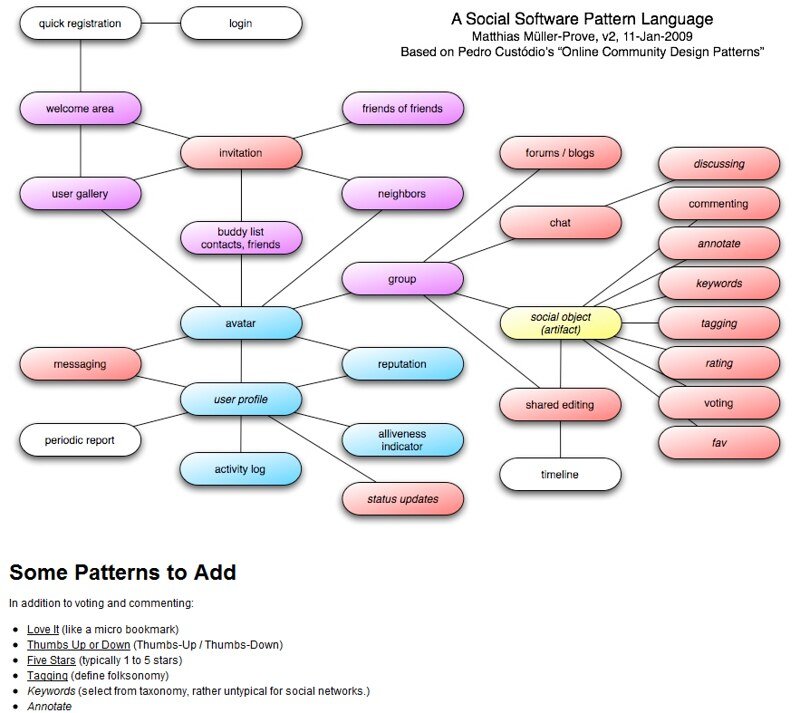In a world constantly pushing us towards individualism, we often overlook the essentiality of connection and communal support in fostering mental wellness. There is no denying that our inner struggles can sometimes feel inherently isolating, causing us to retreat into ourselves, inch by inch. Yet, hidden within the tapestry of human existence lies an undeniable truth – the power of community. Countless studies have affirmed the profound impact of genuine human connection on our overall well-being, acting as a buoy to those navigating the tumultuous seas of their own minds. Join us as we dive into the deep waters of communal ties, exploring the intriguing correlation between social support and mental fortitude. From the ripple effect of empathy to the profound sense of belonging, we’ll unravel why nurturing our communities is not solely a nicety, but a vital necessity for our collective mental health.
Table of Contents
- The Impact of Community Support on Mental Wellbeing
- Building Strong Connections: The Key to Mental Wellness
- The Role of Community in Reducing Stigma and Isolation
- Recommendations for Cultivating a Supportive Community for Mental Health
- Advocating for Accessible Mental Health Services within the Community
- Q&A
- In Conclusion

The Impact of Community Support on Mental Wellbeing
Studies have consistently shown that community support plays a crucial role in promoting and maintaining positive mental wellbeing. When individuals feel connected, valued, and supported by their community, they are more likely to experience improved mental health and overall life satisfaction. Here are some key ways in which community support can have a profound impact on mental wellbeing:
- Social Interaction: Engaging with others in the community provides opportunities for social interaction, reducing feelings of isolation and loneliness. This can boost one’s self-esteem, foster a sense of belonging, and enhance overall mental resilience.
- Emotional Support: Community support networks offer a valuable source of emotional support during times of stress, grief, or hardship. Knowing that there are individuals who genuinely care can alleviate the burden on one’s mental health and provide solace in difficult times.
- Shared Experiences: Being part of a community means sharing common experiences, challenges, or goals. When people come together and share their stories, they create a sense of solidarity, understanding, and empathy. This shared experience can reduce stigma, increase mental health awareness, and create a supportive environment for all.
Overall, community support acts as a protective factor against mental health issues, providing individuals with a strong foundation of support, understanding, and connectedness. By nurturing a sense of community and encouraging support networks, we can collectively contribute to improving the mental wellbeing of all individuals within our community.

Building Strong Connections: The Key to Mental Wellness
In a world that is increasingly connected through technology, it is easy to overlook the importance of building strong connections in our daily lives. However, these connections are not just vital for our physical well-being but also play a crucial role in maintaining our mental wellness.
When we talk about building connections, we are not referring solely to virtual interactions or social media friendships. True connections are formed through genuine human interactions and fostering meaningful relationships with those around us. Whether it be family, friends, or even colleagues, these connections provide us with a support system that can help alleviate stress, reduce anxiety, and boost our overall mental health.
In our digitally-driven society, it is important to prioritize building strong connections through both virtual and in-person interactions. Here are three ways you can enhance your connections for better mental wellness:
- Engage in active listening: Practice being fully present and listening attentively to others when they speak. This simple act of actively listening can help deepen your connections and foster empathy.
- Create meaningful shared experiences: Find activities and hobbies that you can enjoy together with your loved ones. These shared experiences create bonds and memories that strengthen your connections.
- Reach out when needed: Don’t hesitate to ask for support or reach out to someone when you are feeling overwhelmed. Building connections also means being there for others, and in return, they will be there for you.
Remember, building strong connections is not just about the number of friends we have, but the quality of those relationships. By nurturing these connections, we can create a solid foundation for our mental wellness and ultimately lead happier and more fulfilling lives.

The Role of Community in Reducing Stigma and Isolation
One of the most powerful forces in combating stigma and isolation is the sense of community. When individuals come together to support one another, share their experiences, and educate those around them, it creates a ripple effect of empathy, understanding, and acceptance.
Community plays a vital role in reducing stigma by providing a safe space for individuals to openly discuss their challenges and share their stories. It allows people to realize that they are not alone in their struggles, fostering a sense of belonging and connection. Through community, individuals can find validation and affirmation, helping to break down the barriers of stigma.
In addition, community serves as a platform for education and awareness. By organizing workshops, forums, and events, community members can educate themselves and others about the realities of stigma and isolation. They can debunk misconceptions, challenge stereotypes, and promote inclusive attitudes. Through the power of education, communities can empower individuals to become advocates for change, further shifting public perceptions.
- Community offers a support system where individuals can seek guidance, advice, and encouragement from others who have experienced similar challenges.
- Community provides opportunities for collaboration and collective action, enabling individuals to come together in meaningful ways to address systemic issues that perpetuate stigma and isolation.
- Community fosters a sense of belonging, acceptance, and understanding, creating an environment where everyone feels valued and respected.
- Community facilitates the sharing of resources, knowledge, and coping strategies, empowering individuals to navigate their experiences more effectively.
In conclusion, community plays a crucial role in reducing stigma and isolation. By fostering empathy, understanding, and acceptance, it creates a supportive environment where individuals can openly share their stories, educate others, and advocate for change. Together, we can work towards creating a society that values and embraces the diversity of human experiences.

Recommendations for Cultivating a Supportive Community for Mental Health
Building a supportive community for mental health requires a collective effort and a commitment to empathy and understanding. Here are some recommendations to help cultivate such a community:
- Normalize conversations about mental health: Encourage open discussions about mental health to break the stigma surrounding it. Create safe spaces where individuals feel comfortable sharing their experiences without fear of judgment.
- Organize mental health awareness events: Host workshops, panel discussions, or virtual seminars to educate the community about various mental health conditions, their impact, and strategies for support. Invite mental health professionals or individuals with lived experiences to share their insights.
- Foster peer support groups: Establish peer-led support groups where people can connect with others who have faced similar challenges. These groups provide a sense of belonging, understanding, and a platform to share coping strategies while forming strong, supportive bonds.
- Offer resources and information: Create a centralized platform or website where community members can access reliable information, resources, helpline numbers, and online mental health tools. Regularly update and promote these resources to ensure they remain accessible to all.
- Encourage mental health training: Advocate for mental health training in schools, workplaces, and other community organizations. Offer workshops to equip individuals with the knowledge and skills necessary to support those experiencing mental health challenges.
- Promote self-care practices: Emphasize the importance of self-care and share tips for maintaining good mental health. Encourage activities such as exercise, mindfulness, journaling, and creative outlets that can help individuals nourish their mental well-being.
Remember, cultivating a supportive community for mental health is an ongoing process. By implementing these recommendations, we can create a compassionate environment where individuals feel supported, understood, and empowered to prioritize their mental well-being.
Advocating for Accessible Mental Health Services within the Community
Mental health is a vital aspect of well-being that should be prioritized in every community. Unfortunately, accessibility to mental health services remains a challenge for many individuals. However, through advocacy and community initiatives, we can strive to bridge this gap and ensure that everyone has access to the necessary support.
• Collaboration and Education: By bringing together mental health professionals, community leaders, and organizations, we can create a network of support that works towards advocating for accessible mental health services. Education plays a fundamental role in reducing stigma and increasing awareness about mental health issues in the community.
• Breaking down Barriers: It is essential to identify and address the barriers that prevent individuals from seeking and receiving mental health support. These barriers can be financial, cultural, or structural, and by dismantling them, we can create an environment that promotes accessible mental health services for all.
• Engaging Community Resources: Leveraging existing community resources and partnerships can help in expanding mental health services. Collaboration with local clinics, religious organizations, and schools can enhance access to mental health resources, ensuring that they reach even the most vulnerable populations.
Q&A
Why is community important for mental wellness?
Community is important for mental wellness because it provides a sense of belonging and support. Being part of a community allows individuals to connect with others, share experiences, and receive emotional and practical assistance.
How can community involvement improve mental health?
Community involvement can improve mental health by reducing isolation and loneliness. Engaging in social activities, volunteering, or joining support groups can foster a sense of purpose, build relationships, and provide opportunities for personal growth.
What role does social support play in mental wellness?
Social support plays a crucial role in mental wellness as it provides comfort, understanding, and empathy. Having a support network helps individuals cope with stress, enhances self-esteem, and promotes overall mental well-being.
How does a sense of belonging contribute to mental wellness?
A sense of belonging is vital for mental wellness as it fosters feelings of acceptance, connectedness, and validation. Belonging to a community or group can improve self-worth, reduce feelings of isolation, and promote positive mental health.
Can community activities help prevent mental health issues?
Yes, community activities can help prevent mental health issues by promoting healthy coping mechanisms, stress reduction, and positive social connections. Engaging in activities that promote mental well-being can act as a preventive measure against developing mental health problems.
How does community acceptance impact mental wellness?
Community acceptance plays a significant role in mental wellness by promoting inclusivity and reducing stigma. When individuals feel accepted by their community, they are more likely to seek help, share their struggles, and receive the support necessary for maintaining good mental health.
What are some examples of community resources for mental wellness?
Examples of community resources for mental wellness include mental health clinics, support groups, counseling services, community centers, and online forums. These resources offer a range of support, information, and therapeutic interventions to promote mental well-being.
How can individuals contribute to building a supportive community?
Individuals can contribute to building a supportive community by actively participating, showing empathy, and promoting understanding. Engaging in acts of kindness, supporting others, and actively listening are ways to foster a sense of community and enhance mental wellness for all.
In Conclusion
As we bring this journey through the importance of community in mental wellness to a close, let us linger for a moment in reflection. The journey has been enlightening, unveiling the profound impact that connections and engagements within a community can have on one’s mental wellbeing.
In a world that often fosters isolation and encourages self-reliance, it is easy to overlook the immense power that lies within the embrace of a supportive community. From the simplest acts of kindness to the shared burdens that are lightened by collective understanding, the influence of a well-bonded network cannot be undervalued.
Imagine strolling through a vibrant village, where every individual is threaded together by a sense of belonging and care. Within this tapestry of human connection, mental wellness flourishes like wildflowers in a fertile field. It is as though the air is infused with empathy, and the everyday struggles are tempered by shared stories, laughter, and tears.
Here, the burden of mental health is not carried alone but distributed amongst those willing to lend an ear or offer a helping hand. Cloaked in the warmth of community, individuals are empowered to reach out, fostering resilience and strength that may have seemed unimaginable when facing their troubles alone.
Beyond personal struggles, a robust community can facilitate a sense of purpose and meaning in life. Be it engaging in communal activities, volunteering for a worthy cause, or simply sharing in the joys and sorrows of neighbors, the bonds formed are a balm for the soul. They remind us that we are not isolated specks in an indifferent universe but treasured members of an interconnected web, each unique and vital in our own way.
Of course, the road to a harmonious, supportive community is not without its challenges. It requires effort, empathy, and compassion from every resident, recognizing that the mental wellbeing of one person is interconnected with that of their entire community. The journey may be long, but the rewards are immeasurable.
As we depart from this exploration of the importance of community in mental wellness, let us not forget that we are all connected, woven together by the threads of shared experiences, emotions, and aspirations. In nurturing and cultivating our communities, we ultimately nurture and cultivate our own mental wellness, weaving a tapestry of resilience, understanding, and healing for generations to come.
So let us embark on this pursuit together, celebrating the profound worth of community as we leave no one stranded in the wilderness of their minds. Let us embrace the importance of community in mental wellness with open hearts and extend a helping hand to those who need it, for in unity lies the true essence of human existence.
As an affiliate, my content may feature links to products I personally use and recommend. By taking action, like subscribing or making a purchase, you’ll be supporting my work and fueling my taco cravings at the same time. Win-win, right?
Want to read more? Check out our Affiliate Disclosure page.